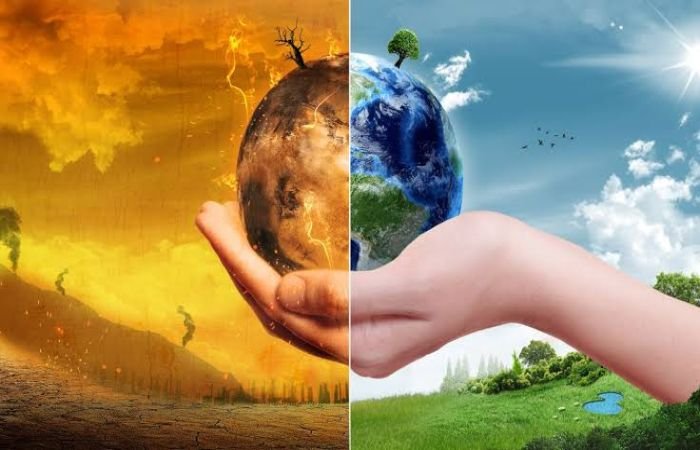
Navigating the Climate Crisis: A Call to Action in the Face of Global Warming
Navigating the Climate Crisis: A Call to Action in the Face of Global Warming
Introduction:
As we journey further into the 21st century, the specter of global warming looms larger than ever before. The Earth's climate is changing at an unprecedented rate, driven primarily by human activities such as the burning of fossil fuels, deforestation, and industrial processes. The consequences of this rapid warming are profound and far-reaching, affecting ecosystems, weather patterns, and human societies worldwide. In this blog entry, we'll explore the complexities of global warming, its impacts, and the urgent need for collective action to address this existential threat.
Understanding Global Warming:
Global warming refers to the long-term increase in Earth's average surface temperature, primarily attributed to human activities that increase greenhouse gas concentrations in the atmosphere. The main culprit is carbon dioxide (CO2), emitted from activities like burning coal, oil, and gas for energy. Other greenhouse gases, such as methane and nitrous oxide, also contribute to the warming effect.
The Impacts:
The impacts of global warming are multifaceted and pose significant challenges to both natural and human systems. Rising temperatures lead to more frequent and severe heatwaves, droughts, and wildfires, endangering ecosystems and agriculture. Melting ice caps and glaciers contribute to sea-level rise, threatening coastal communities and infrastructure. Shifts in weather patterns disrupt rainfall and exacerbate extreme weather events, from hurricanes to floods.
Human Health:
Beyond environmental impacts, global warming directly affects human health. Heat-related illnesses increase during heatwaves, while air pollution worsens respiratory conditions. Changes in disease patterns, such as the spread of vector-borne diseases like malaria and dengue fever, pose further risks to public health.
The Call to Action:
Addressing global warming requires concerted efforts at local, national, and international levels. Transitioning to renewable energy sources such as solar and wind power, enhancing energy efficiency, and promoting sustainable land use practices are critical steps in reducing greenhouse gas emissions. Additionally, protecting and restoring ecosystems, such as forests and wetlands, can help absorb CO2 and mitigate climate change impacts.
Individual Actions Matter:
While systemic change is essential, individual actions also play a crucial role in combating global warming. Simple lifestyle changes, such as reducing energy consumption, minimizing waste, and adopting plant-based diets, can collectively make a significant difference. Moreover, raising awareness and advocating for climate-friendly policies can help drive larger societal change.
Conclusion:
Global warming poses one of the greatest challenges of our time, with profound implications for the planet and its inhabitants. Addressing this crisis requires bold and immediate action, grounded in science, equity, and cooperation. By embracing sustainability, innovation, and collective responsibility, we can navigate the climate crisis and build a more resilient and equitable future for generations to come. The time to act is now.
Comment
Cerine Arezki
Wars are the worst thing in this world. “We do not know when war will come. It will be sudden.” I am very afraid of them, especially when I started hearing about the Palestinian issue and Israel.
Dina Belkacem
It's really good and it can encourage a lot of people to save the earth Global warming is a challenge that we have to face all together to keep ou planet safe. Every one is responsible for saving our planet
Rania Oukil
You are right, all the information are true, thanks for this amazing topic.
Sidahmed Hocine Beghaoui
Every one is responsible for saving our planet so we must do what is necessary















